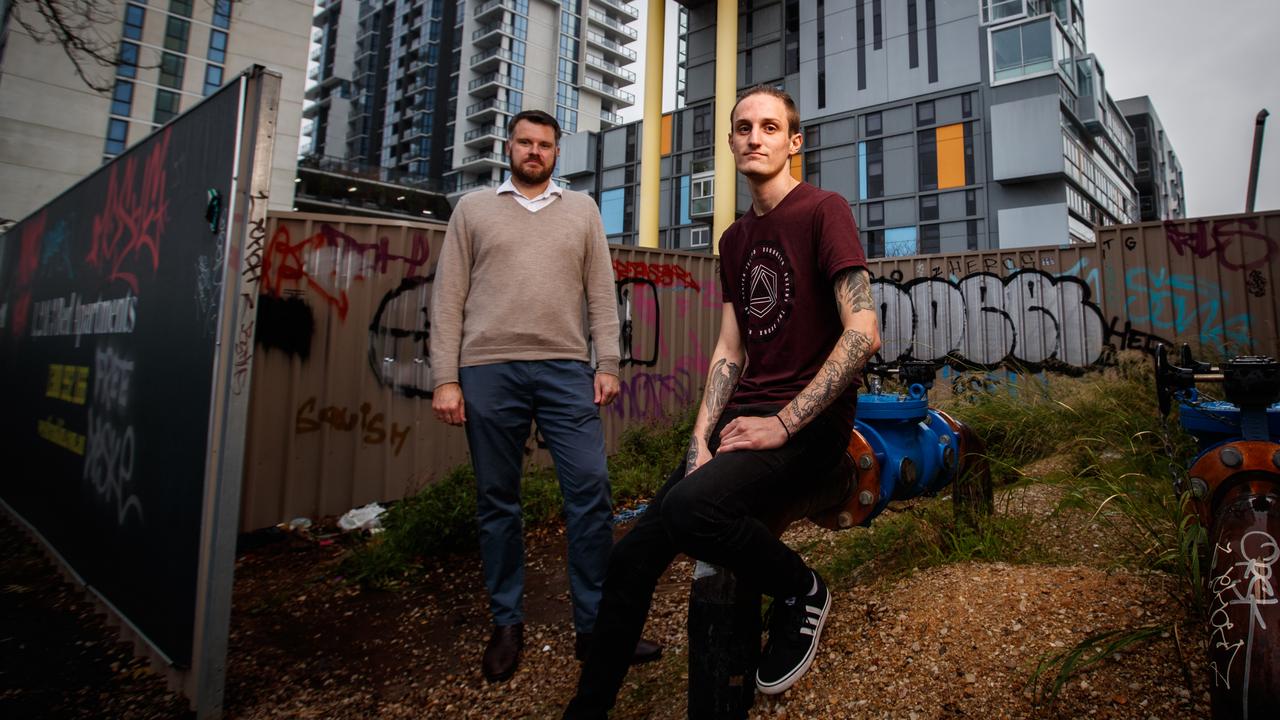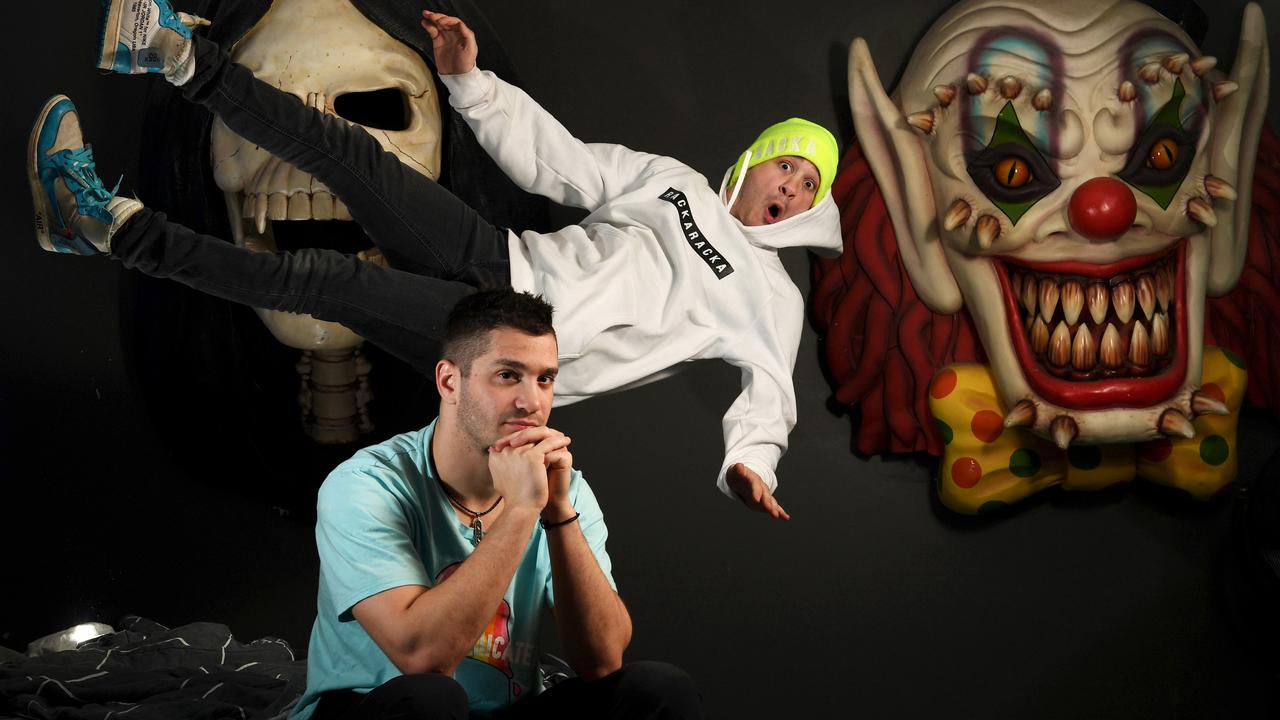Adelaide – the bright ideas capital
UBER, Snapchat, Airbnb and Dropbox were all start-ups before they hit the big time. Now Adelaide is earning an international reputation for encouraging entrepreneurs to take their bright ideas to market – and maybe become the next big thing.
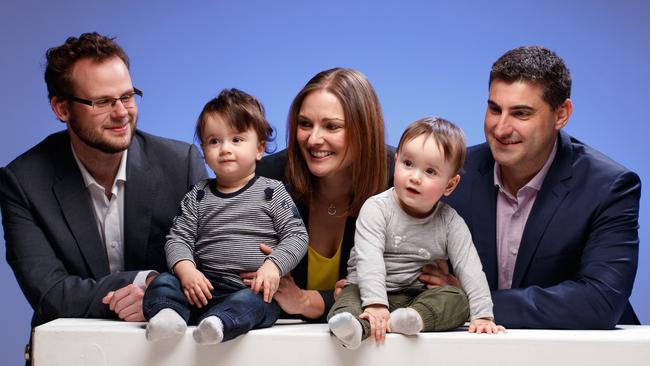
SA Weekend
Don't miss out on the headlines from SA Weekend. Followed categories will be added to My News.
JONATHAN Hall knew he was on to something big. Something that would help couples struggling to have kids. Something that could massively boost their chances of falling pregnant and carrying a healthy baby. Something that could save them immense stress – and potentially thousands of dollars.
That much the young researcher from the University of Adelaide knew. What he didn’t know was how to take it out of the laboratory and into the real world.
On the other hand, former medical researcher Michelle Perugini knew a lot about taking bright ideas and creating successful companies from scratch. She also knew something else: the pain of trying to have a baby.
Michelle and husband Don had once struggled to fall pregnant, and had even resorted to IVF. Thankfully, she conceived naturally on an overseas trip.
But she hadn’t forgotten the stress and the worry. So when Hall came to her with his idea, she got it – not only technically and financially but at the crucial psychological level.
What Hall was offering was to develop a software program to instantly analyse scans of embryos created by IVF and pick the ones most likely to produce babies. The former St Peter’s College student was convinced it would be more accurate than human experts who examined the same images with microscopes.
It also avoided the need for invasive procedures by embryologists – which sometimes involves slicing embryos open.
The software sounded like a winner, one that couples at fertility clinics around the world would be prepared to pay for to help fulfil their hopes of parenthood.
But making that happen wouldn’t be easy. It would require taking risks – big risks. Luckily for Hall, Michelle and Don, an international expert on cognitive behaviour and artificial intelligence, were exactly the right people for that.
The couple were among the pioneers of start-ups in Adelaide, defying their critics to quit well-paid jobs to successfully set up a company which developed software which accurately predicted the behaviour of consumers. That company, ISD Analytics, was sold for an undisclosed sum in 2015 to international accountancy giant Ernst and Young. Now they’re chasing more opportunities within Adelaide’s burgeoning start-up scene.
Start-ups are the new hope for SA’s economy. They’re basically inventors commercialising their research or innovations, most of which involve digital technology.
Currently, 200 of them employ 1300 people, but the hope is they’ll keep on expanding. To do that, they need ideas, cash and a willingness to take risks.
Dozens are scattered across Adelaide at special “incubators” like the Tonsley Innovation District, University of Adelaide’s ThincLab on North Tce, UniSA’s Future Institute, and Technology Park at Mawson Lakes. Others are renting space, keeping their costs to a minimum, at 38 co-working spaces within the city.
Like competitors in capital cities across the globe – from Copenhagen to Austin, Singapore to Tel Aviv – they are attempting to develop ideas which can be turned into profitable businesses. Many are winning international awards and global clients.
They are boosted by access to 200km of supercharged internet connections the former government installed to transfer large data files, making Adelaide the first city outside the US to become part of an international high-speed gigabit network.
SA’s start-up scene is attracting international attention, with extensive coverage recently in the New York Times, Huffington Post and Forbes.
Ideas being developed embrace health care, social services, medicine, virtual reality, agriculture, food production, autonomous vehicles, drones, cryptotechnology, smart phone applications, robotics, 3D printing and cyber security.
It is a vastly different landscape to the one which Michelle and Don Perugini entered when they decided to quit their jobs in 2007 after working within government and university-controlled laboratories. Their decision was met with negativity and scepticism.
“Now we would actually call it a start-up but back then it wasn’t called a start-up – it was called a stupid idea,” says Michelle. “It was called ‘why are you doing this when you have stable jobs?’”
Don was a 24-year-old researcher at the Defence Science and Technology Organisation’s Edinburgh headquarters when he met Michelle at an Adelaide bar in 2000. Michelle, then 19, was finishing an honours degree at the University of South Australia.
She would go on to specialise in predictive genetics while Don would work in collaboration with defence organisations in the US, United Kingdom, Canada and Singapore developing artificial intelligence to predict human behaviour.
Both ended up with PhDs and formidable reputations in their respective fields. They also shared another trait: ambition.
Michelle took that drive to succeed to her first meeting with Jonathan Hall in December, 2016, where he explained how he believed digital technology could replace the invasive laboratory procedures used to determine which embryos had the better survival rates during IVF. Michelle, who had experienced difficulties conceiving and had registered for an IVF program before falling pregnant on an overseas trip, took the idea home to Don.
“I was really drawn to the idea immediately,” she recalls. “It seemed like something logical that could actually make a difference.”
Don agreed but wanted more detail. A second meeting was set up with Jonathan where he presented a convincing business plan to both of them.
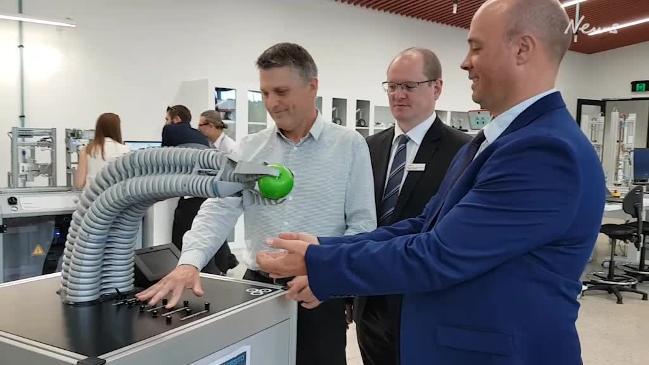
The trio decided they would form a company to develop a computer program for IVF clinics globally, Life Whisperer. Jonathan agreed to resign from the University of Adelaide, secure his intellectual property and join them to pursue his dream.
For years before that, the physicist found little encouragement or support from within the university. It was not until he signed up for an entrepreneurial program, the EChallenge, did doors finally open – and led him to Michelle and Don.
“Looking back at how hard the process was (breaking out from the university sector), and the attitudes I encountered, the negativity and the obstacles, I wouldn’t want anyone to have to go through that,” he says.
“Doing research started becoming harder and harder. There were always issues with money and dealing with beancounters. It started becoming harder and harder to get funding to get your project to the next stage. It became a losing battle.”
Now, thanks to Michelle and Don, that has all changed. The venture has already been an overwhelming success, with Life Whisperer winning several national and international awards, including a global prize judged by Virgin founder Sir Richard Branson and Apple co-founder Steve Wozniak as the “best idea to watch”.
Don identifies one of the biggest obstacles to the success of innovation within Australia as the reluctance within universities to commercialise their research. He believes academics are too focused on writing research papers, not creating products which can have global benefits. Neither, in his opinion, are universities doing enough to promote entrepreneurship.
“In terms of the culture in universities, they are graded on how many papers they write, not the products they create,” says Don. “What’s the point of having prototypes sitting on shelves and stacks of research papers?
“When we said we were leaving our jobs, other researchers felt threatened that we weren’t going to be doing research. We were commercialising and wanting to make money, which wasn’t noble to them.”
Don says that must change if Australia is to become a global player with innovation and technology. It needs to get rid of the Tall Poppy Syndrome and encourage entrepreneurism, even if it means failure.
One country where such a culture is deeply entrenched is Israel, the world’s most successful start-up nation. Its economy is booming on the back of decades of innovation designed to defend itself against hostile neighbours and provide for its escalating population in a harsh, arid environment.
Israelis are encouraged to become entrepreneurs from secondary school, with many developing ideas for businesses while they complete compulsory military service between the age of 18 and 21. The smartest high school students are sent to elite colleges teaching science and mathematics, with many then recruited into a top-secret military division specialising in cyber security and cyber warfare, Unit 8200.
Former officers from Unit 8200 and other arms of the Israeli military are dominant within the country’s 6000 start-ups, many of which have emerged from eight highly-ranked universities and 57 colleges where entrepreneurship combines with groundbreaking research.
Israel has a dedicated Department of Innovation, the world-famous Techinon research facility at Haifa, 19 incubators and hosts large research and development operations for international tech giants like Dell, 3M, PayPal, Google, LG, Samsung, Motorola, IBM, eBay, Phillips, Siemens, GE, Motorola, GM, Yahoo, Nokia, Hewlett Packard and Microsoft.
Products created in Israel include smart phone keyboards, Intel Pentium chips, Google’s search engine, printing straight from computers, flash drives, iPad chips, the Amazon Kindle chips, the Sony PlayStation processor, computerised drip irrigation and the cherry tomato.
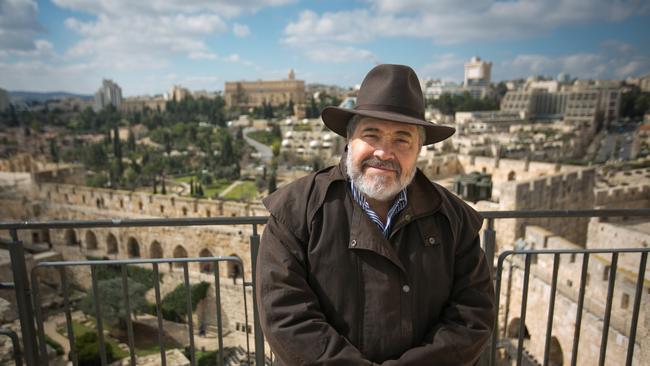
Among the biggest players in the Israeli start-up ecosystem is serial entrepreneur Jon Medved, a big fan of Australia who wears an Akubra, well-worn, full length Driza-Bone and battered Blundstone boots to meetings from Jerusalem to Tel Aviv.
A larger-than-life character, the undisputed “cheerleader” of Israel’s start-ups has a simple message for South Australians – and Australians – generally: We need to get more “chutzpah”.
“Chutzpah is perhaps the most definitive Jewish word,” Medved explains. “It is very, very hard to translate.
“Gall, you know, unrelenting daring – this ability to try to do something which no one else has done before, to say something which is a little bit out of place, to be in someone’s face. Chutzpah is what allows us to actually break the boundaries and to break the rules and to go out of our comfort zone and create new things.”
One of Israel’s most influential venture capitalists, Medved hosted a convention at the Jerusalem Exhibition Centre in February, where 10,000 of his 25,000 investors in 112 countries across the world gathered to hear him outline the key targets of his company, OurCrowd, for 2018.
“Australia represents a perfect partner for Israeli innovation, given its size and location, wealth and spirit,” he says. “Australia is just big enough of a market to have critical mass, but not too big to be unapproachable.
“Australia is a great base for reaching Asia’s growing markets as well. Australia has one of the greatest concentrations of capital in the world and Australians have been risk takers in mining and in sports but hopefully, in the near future, in the innovation space as well.”
Medved says Australian start-ups need to think more globally if they are going to succeed. “The thing we have going for us is an attitude towards global entrepreneurship,” he says. “Israelis, from day one, get on a plane and go somewhere else. They don’t want to be the biggest in Israel, the king of Tel Aviv. I think that’s probably something Australians could learn from us.
“I met a bunch of Australian entrepreneurs and they are great guys but their dreams begin and end in Australia. It’s about your attitude towards risk. In Israel, we celebrate failure. If you build a company and fail, good on you.
“Failure is not a four-letter word. The last time I looked failure is part of the process. Not every team wins every game but you have to try, and if you fail, you learn from your mistakes, pick yourself up, and do it right again.”
Medved says the current state of innovation and start-ups within Australia reminds him of where Israel was 20 years ago.
“Australia is in a big enough market, a great place, but it’s not enough wanting to be the biggest in Australia,” he says.
“In order to really win in this game you have got to be the biggest in the world and you have got to get on a plane and go to Silicon Valley, go to Asia, go to Europe and compete with the best the world has got to offer and dominate.”
Among Medved’s thousands of investors is Australian businessman Tom Krulis, who formed the Godfreys vacuum cleaner franchise. A regular visitor to Israel and a close friend of Medved’s first investor, Queensland venture capitalist Geoff Levy, he says Australia urgently needs to start taking start-ups more seriously – and develop a national ecosystem similar to Israel where universities are mandated to create innovation from research.
“When I come to Israel and see what has happened here one of my first thoughts is why is there no ecosystem for a start-up nation component in Australia,” he says. “For someone who is in business, it is one of my great disappointments and I think a lot more needs to be done. We need to provide that ecosystem or we are going to fall behind the rest of the world in a major way.”
Krulis concedes some progress is being made to establishing start-up ecosystems in Australian capital cities such as Adelaide, Sydney and Brisbane but the country will never be able to compete with the likes of Israel without greater government oversight and input.
“Australia really needs to reinvent itself and the sooner the better,” he says. “It’s urgent. We need an ecosystem. We need to get our universities involved, we need the governments to be involved, we need incentives such as company tax cuts. We need more venture capital.
“We need to get rid of the red tape, the Tall Poppy Syndrome. We need to get the PhDs involved. We haven’t got long. The iPhone was only invented 10 years ago. In 10 years, if we don’t change, we are going to be left behind and we will never catch up.”
Krulis says the major difference between Israel and Australia is that Israel has suffered from adversity since its creation as an independent nation in 1948 while Australia has always regarded itself as “The Lucky Country”.
“It starts with need and desire. Israel has an imperative. You either set up a start-up nation or you don’t survive,” he says. “We didn’t need to have a start-up nation to survive. We’ve always been the lucky country. We’ve become complacent. But we won’t be the lucky country forever because it is clear in the headwinds that you are either going to have a start-up ecosystem or you’re going to be left behind. The Lucky Country better get to be the Smart Country real quick.”
Krulis will get no argument from Joe Thorp, the South Australian businessman who was appointed to head up Tech In SA, the government agency charged with developing the state’s start-up ecosystem.
Recruited from the private sector 12 months ago, he is determined to raise public awareness of the success stories emerging from within the various incubators and co-working spaces operating within the Adelaide metropolitan area.
“The scene here is a lot bigger and more developed than a lot of people think. It’s just that we don’t bang on about it enough and I am about to change that,” he says.
“People will say there are 2000 start-ups in Adelaide. We know there are 200 high quality start-ups that are in revenue, that have had substantial investment, which are employing about 1300 employees. There’s been $250 million put into those start-ups in nearly 300 deals over the past five years.”
Thorp names Life Whisperer, Signostics, Vinomofo, Buddy Platform, Micro-X, NuSkope, Tic: Toc, HappyCo, Titomic, Gooroo, Bluedot, PrimeQ, RHS Ltd, Uniti Wireless, 1414 Degrees and Myriota as some of the Adelaide start-ups kicking the biggest goals.
“We have to explain to the community that when you are looking for future jobs in Adelaide you can’t turn up at Holden and wonder why nobody is going through the front gates,” he says. “You have to look at all these new companies that have got all these jobs. Nobody knows who they are and they are employing. They are going to employ your kids.”
Thorp agrees with Don Perugini that Australia needs to become more entrepreneurial with its education and encourage researchers to become business people.
“What Europe has done and what the US has done very successfully is when kids go to university their mindset is, ‘I am not going to university to become an academic or to get a job, I am going to go to university to get a PhD and start a business using my tech know-how.’ That’s the cultural change that I’ve seen in Europe. The US did it years ago. We have to do it here.”
University of Adelaide Entrepreneur-in-Residence Kristian Livolsi says there is a concerted push underway to introduce entrepreneurship into SA’s three universities, both as part of their culture and also as part of degrees.
“It’s about working with the research sectors to bring researchers out of the shadows and say what have you got and how can we help you commercialise it,” he says.
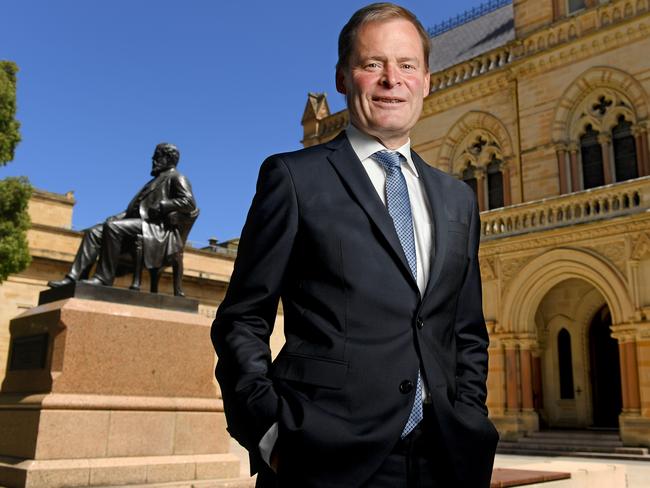
Livolsi’s boss, University of Adelaide Vice-Chancellor Peter Rathjen is spearheading a push to convert the former Royal Adelaide Hospital site on North Tce into the state’s central location for researchers to commercialise innovations.
Professor Rathjen says Adelaide is at a “tipping point”, where it must make decisions that transform its economy and secure the future for generations to come.
“The great cities around the world, facing similar challenges, have recognised that solutions to socio-economic renewal must be founded on innovation, smart people and global connectivity,” he says. “Those great cities look to create physical spaces that connect universities with business, industry and societal need.
“They recognise that from this connectivity will flow energy, ideas and the industries of the future.”
Rathjen says Adelaide needs the right physical space to leverage the strengths of its universities to draw multinational research-based corporations, entrepreneurs, start-ups and SMEs, students, and researchers from around the globe.
“You need a place where high-level capability and innovation come together with the market and come together with entrepreneurs and finance — a complex ecosystem where new ideas find expression in new enterprise,” he says.
“Adelaide is blessed with the perfect site to realise this vision: the old Royal Adelaide Hospital site located between the universities and the CBD, at the heart of our beautiful city.”
Rathjen’s efforts to transform the old RAH site into a giant incubator where global players partner up with local start-ups have been welcomed by Thorp and Livosli.
The pair have been working closely with Canadian-born composer and entrepreneur Tom Hajdu, who migrated to South Australia to live with his wife at McLaren Vale after running a successful music production company in Los Angeles.
Appointed by former premier Jay Weatherill as the state’s first chief adviser on innovation, he is credited with helping the city vastly increase its global connectivity through the GigCity project.
Hajdu says South Australians need to understand the digital revolution is well underway, with the state perfectly positioned to take advantage of the huge opportunities which will present themselves in the Asian region.
“The digital economy will vapourise everything. Digital is everything. It is mining, it is medicine. It is everything. Everything that has come before will be vaporised by digital,” Hajdu says.
With the demise of manufacturing, particularly the closure of Holden, Hajdu says it is critical the state seizes the potential for start-ups to become global players, especially in the space industry.
“When we talk about space we are talking about everything. We are talking about networks, data, data analysis, agriculture, logistics. It is just not men on the moon putting flags in type stuff.”
Hajdu says South Australia needs to stop lamenting the past and start focusing on its future. “We can’t look in the rear view mirror,” he says. “We have the opportunity to shape the future economy. It’s in our hands, literally, as we speak.
“There is a global economic race and Adelaide is in it. There are criteria required to win. We have all the requirements that are necessary to win.
“This is a revolution and it is happening right now. It’s going to happen anyway so what I say is, ‘get on the bus or get out of the way’.”
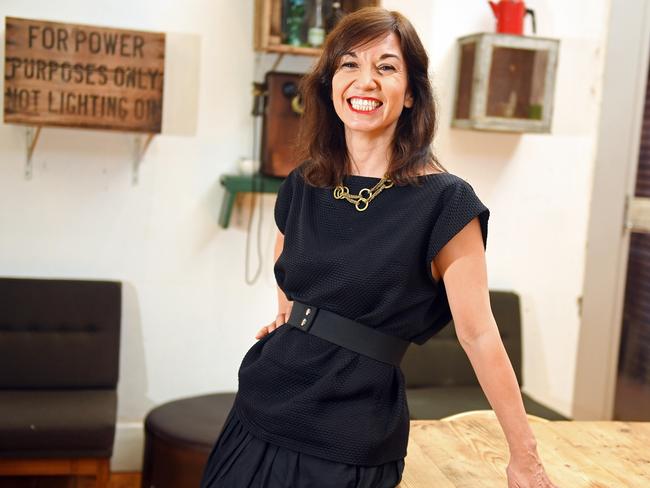
SARA BELL
Sara Bell is an enthusiastic supporter of the fast-growing start-up ecosystem in South Australia.
The London-based renewable energy expert and founder of Tempus Energy – which aims to combine cleanest and cheapest energy for its customers – set
up an Adelaide office after meeting Jay Weatherill in Paris, choosing The Hub co-working space in Peel St.
Bell says South Australia is praised internationally for its renewable energy policies, which are attracting global attention.
“I really, really like it here. People are genuinely open to doing things differently. There is an energy in that willingness,” she says. “The worst sort of environment to be in is when you want to change things and you feel like you are banging your head against a wall, whereas when I come here things are actually happening.
“Things like the decision around the solar thermal plant, the Tesla battery. It’s not just talk. It’s actually actions to create change. I cannot stress how energising it is to be in that environment.”
Bell says Adelaide’s smaller population makes it ideal for a start-up ecosystem. “It’s not about the size, it’s about how you use the space,” she says.
“People are so helpful here. When you run a small company similar businesses, or even different businesses, you face the similar need to survive so the camaraderie and the assistance, because other businesses are in the same kind of position, is very strong here.”
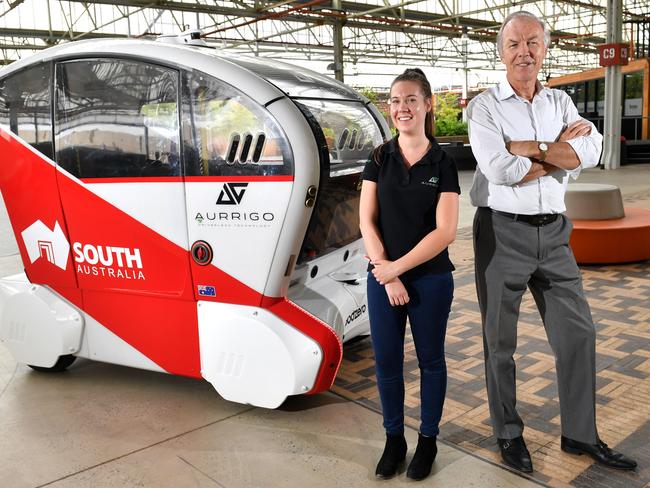
ALYSSE MCDONALD
Alysse McDonald would never have gone overseas for the first time if it wasn’t for the Innovation Hub at Tonsley. The 20-year-old was a third-year Flinders University electronic engineering student when she secured work placement with autonomous vehicle developer Aurrigo, which chose Adelaide to set up its first Australian office.
Within weeks of starting last September, McDonald was sent to the company’s headquarters in the United Kingdom to learn how to operate and manage one of its autonomous vehicles. “Alysse didn’t have a passport so we sorted that out and sent her off to Coventry,” says her Australian boss, Roger van de Lee.
“She spent three-and-a-half weeks getting to know the company and the team as she will be taking a lead role in what we are doing here.”
That role involves supervising one of three automated pods which Aurrigo is deploying at Tonsley to deliver parcels and other goods to companies in the sprawling hub.
It is part of a push by the company to become a global player in autonomous vehicles, with the production of driverless buses among its goals.
McDonald says Tonsley has presented her with opportunities to remain in South Australia, rather than head interstate or overseas.
“I really like Tonsley, it’s just a really great environment,” she says.
“I think it will be great for young people heading into the future. Local people will be trained here rather than having to go overseas or elsewhere.”
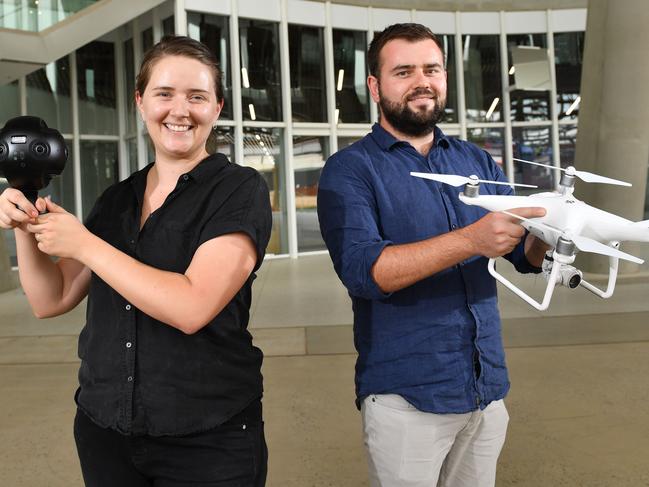
LAURA AND ALEX TOLSON
Siblings Laura and Alex Tolson were developing a start-up out of a granny flat at Croydon Park when they decided to move into a business incubator.
Like thousands of other start-ups across the world, they haven’t looked back, with their drone aerial photography venture literally taking off.
The pair leased space at the New Venture Institute at Tonsley, established by Flinders University to help its researchers and the private sector develop new start-ups.
Laura, 29, says their business, Lateral Vision, had gone from strength to strength since relocating into the shared working space, and receiving help from mentors and business advisers.
“The doors were literally and figuratively opened for us and it was fantastic to be immersed in the Adelaide start-up and business sector,” she says.
“We’ve been at NVI for nearly two years and in that time have collaborated with three other start-ups to jointly offer services to our clients.
“We also now call at least five of the businesses within the precinct our clients, including Flinders University and RenewalSA.”
Laura says it is vital for start-ups to have networking opportunities with other businesses in their first years of operation, which happens within incubators and co-working spaces.
“When a potential investor or new client notices you are already working for some big players, the conversation and opportunities can really begin to flow,” she says.
“We would not have had those introductions or conversations from our home office in the suburbs.”
Like many start-ups across Adelaide, one of the big factors for Laura and Alex deciding to move to Tonsley was its connection to the GigCity internet network.
“We were literally spending hours per day uploading and waiting for our internet speeds at home,” she says.
“What could sometimes take several hours at home, was taking minutes
at Tonsley.”
START UPS EXPLAINED
Startups: Entrepreneurial ventures trying to develop new ideas or products, predominantly around digital technology.
Incubators: Hubs where startups receive logistical support from mentors, business advisers, high-speed internet connections and office space.
Co-working spaces: Startups lease office space in shared cooperative facilities, pooling administrative support.
Angels: Investors who provide working capital to help startups become established as they develop products.
Venture capital: Funding from investors, often banks or superannuation funds, to take products into global markets.
Exit: Ultimate objective of startups is to develop successful products, potentially list on stock exchanges and sell out to the highest bidders.

